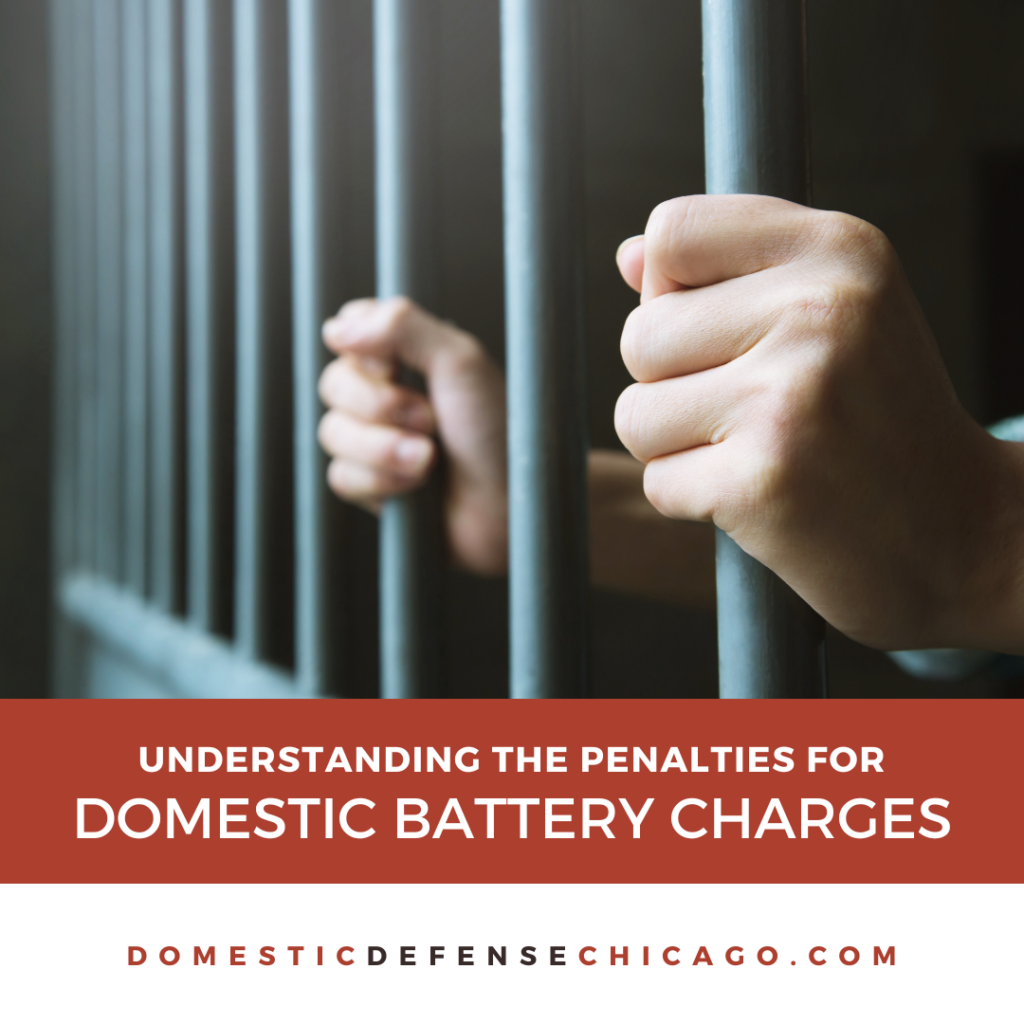Facing charges for domestic battery in Illinois can have serious consequences. This offense carries penalties that can affect your life in many ways, including fines, jail time, and a criminal record. Understanding the potential outcomes is important if you’ve been charged, and knowing your rights can help you make informed decisions about how to handle your case.
Understanding the Penalties for Domestic Battery in Illinois
This guide explains the following:
- What domestic battery means under Illinois law
- The penalties for a domestic battery conviction
- The differences between misdemeanor and felony charges
- How a conviction can impact your future
- Why working with a domestic battery defense lawyer is essential
Here’s a closer look at each.
What Domestic Battery Means Under Illinois Law
Domestic battery involves knowingly causing bodily harm or making physical contact of an insulting or provoking nature with a family or household member. Under Illinois law, a family or household member can include a spouse, former spouse, co-parent, relative, or someone you currently or previously lived with.
The circumstances of the alleged incident, such as the severity of the harm or any prior convictions, can influence how the court handles the case and the penalties it imposes.
The Penalties for a Domestic Battery Conviction
Domestic battery is typically charged as a Class A misdemeanor, which can result in:
- Up to 364 days in jail
- Fines of up to $2,500
If there are aggravating factors, such as prior convictions or the use of a weapon, the offense may be elevated to aggravated domestic battery, a felony. Felony convictions carry harsher penalties, which can include:
- Several years in prison, depending on the felony class
- Substantial fines
- Mandatory counseling or intervention programs
The penalties imposed will depend on the specifics of your case, including your criminal history and the evidence presented.
The Differences Between Misdemeanor And Felony Charges
The primary difference between misdemeanor and felony domestic battery charges lies in the severity of the penalties and the long-term impact on your record. Misdemeanors are serious but generally result in less severe consequences compared to felonies. A felony charge often involves factors like prior convictions, the use of a deadly weapon, or significant harm to the alleged victim.
Felony domestic battery can also lead to mandatory prison sentences, especially if the court views the offense as a repeat or aggravated case. Understanding the differences between these charges is crucial when planning your defense.
How a Conviction Can Impact Your Future
A conviction for domestic battery can affect many aspects of your life. It may result in:
- A permanent criminal record
- Difficulty finding employment or housing
- Restrictions on owning firearms
In some cases, a domestic battery conviction can also impact family law matters, such as custody or visitation rights. Addressing these potential consequences requires careful consideration and the assistance of a qualified attorney.
Why Working with a Domestic Battery Defense Lawyer Is Essential
Facing domestic battery charges on your own can be overwhelming. A domestic battery defense lawyer can guide you through the legal process, explain your options, and advocate for your rights in court. They can review the evidence, identify any issues with the prosecution’s case, and ensure that your side of the story is heard.
While no outcome is guaranteed, having an experienced lawyer by your side ensures that you’re prepared and informed at every step of the process. Legal representation can help you navigate the complexities of the case and protect your rights throughout.
FAQ About Penalties for Domestic Battery in Illinois
What Are the Possible Penalties for a Domestic Battery Conviction?
Penalties can include jail time, fines, mandatory counseling, and a permanent criminal record. The severity depends on whether the charge is a misdemeanor or felony.
Can Domestic Battery Be Charged as a Felony?
Yes, domestic battery can be charged as a felony if there are aggravating factors, such as prior convictions or the use of a weapon.
How Does a Conviction Affect My Record?
A conviction results in a permanent criminal record, which can impact employment, housing, and other areas of life. Expungement is not available for these convictions.
Can I Avoid Jail Time for Domestic Battery?
The court’s decision depends on the specifics of your case. Discussing alternative options with your attorney is essential.
Why Should I Hire a Lawyer for Domestic Battery Charges?
A lawyer can help protect your rights, explain the legal process, and provide guidance to ensure you’re informed and prepared for your case.
Understanding the penalties for domestic battery in Illinois is an important step toward addressing your charges. By knowing what’s at stake and seeking legal guidance, you can navigate the process with confidence and protect your rights.
Do You Need to Talk to an Attorney About Domestic Battery Defense?
If you need to talk to a domestic battery defense attorney in Illinois, we’re here to help. Call us at 847-920-4540 now – we’ll be happy to give you a free consultation and talk to you about your options.







Leave A Comment
You must be logged in to post a comment.